Looking for a splash of humor? We’ve rounded up the funniest dolphin jokes that are sure to make waves at your next gathering. From clever puns to family-friendly one-liners, these aquatic quips showcase why dolphins aren’t just intelligent creatures—they’re also perfect comedy material.
Our comprehensive collection dives deep into dolphin humor that everyone will enjoy. Whether you’re a marine biology enthusiast or simply appreciate a good laugh, these jokes hit the perfect balance of wit and charm. We’ve carefully selected each joke to ensure they’re appropriate for all ages while still being genuinely entertaining.
Playful Puns That Make a Splash: Top Dolphin Jokes
Dolphin puns deliver instant laughs with their clever marine wordplay. We’ve collected the most fin-tastic dolphin jokes that will have everyone at your next gathering swimming in laughter. These aquatic quips showcase the playful nature of these intelligent marine mammals while providing clean humor suitable for all ages.
- What do you call a dolphin that greets you at the door? Finn-troductions!
- Why did the dolphin cross the ocean? To get to the other tide!
- How do dolphins send messages? They use shell phones!
- What’s a dolphin’s favorite TV show? Whale of Fortune!
- Why are dolphins so good at basketball? They’re always making splash shots!
- What did the dolphin say to his friend at the party? “This place is fin-tastic!”
- How do dolphins stay connected? Through the inter-net!
- What’s a dolphin’s favorite game? Marco-Polo!
- Why couldn’t the dolphin remember anything? He had a porpoise amnesia!
- What do you call a group of musical dolphins? An orka-stra!
- Why don’t dolphins ever get lost? They always follow their sonar instincts!
- What did the dolphin say after telling a joke? “That was on porpoise!”
- Why are dolphins such good detectives? They get to the bottom of everything!
- How do dolphins like their sandwiches? With extra fish paste and a splash of water!
- What’s a dolphin’s favorite exercise? Swimming laps around the competition!
Why Dolphin Jokes Are Making Waves in Comedy Circles
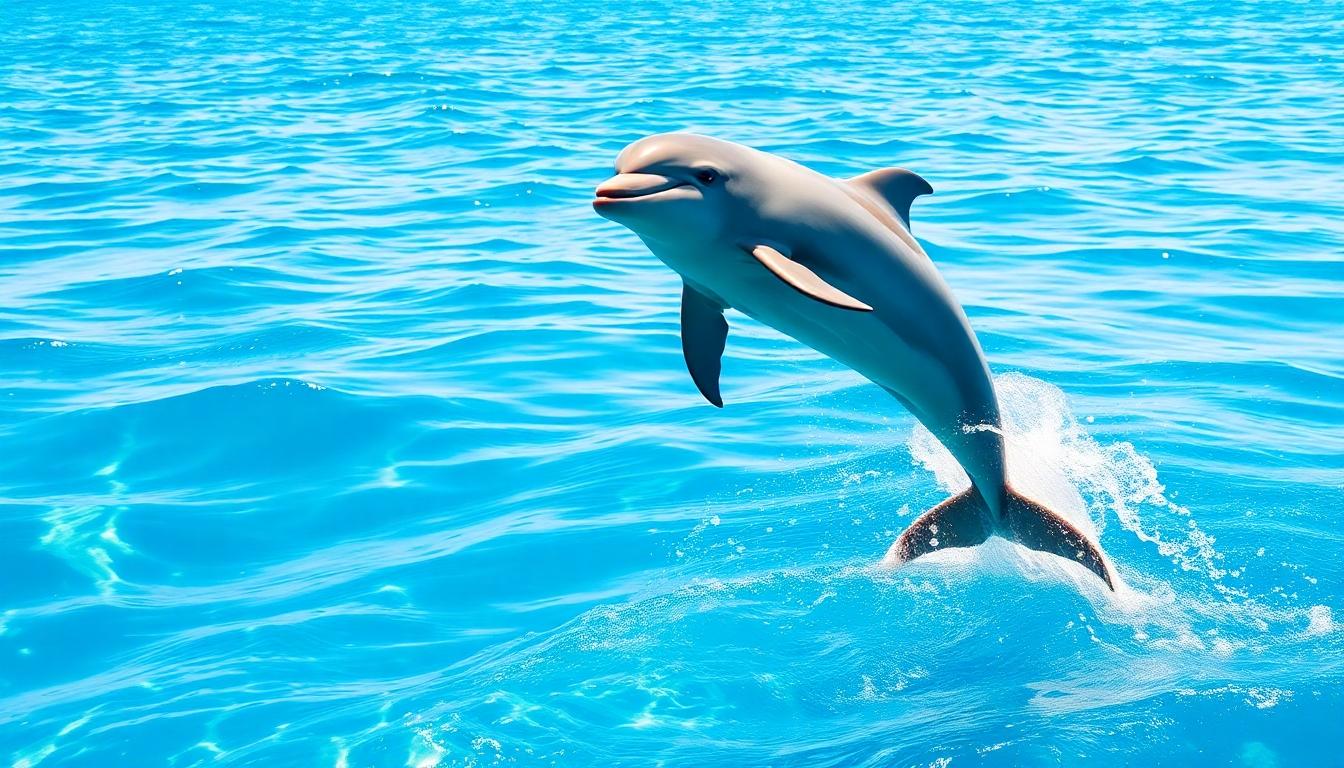
Dolphin humor continues to surge in popularity due to its inherently playful nature and universally appealing marine themes. These aquatic comedic gems captivate audiences through clever oceanic puns and anthropomorphic scenarios that highlight dolphins’ perceived intelligence and joyful characteristics.
The Universal Appeal of Marine Humor
Marine-themed jokes, especially dolphin-centered ones, connect with global audiences because of our shared familiarity with aquatic environments. Everyone can appreciate visual humor like “What do you call a sunburned dolphin? A toastie!” or situational comedy such as “Why did the dolphin refuse to play cards? He feared sharks!” These jokes blend seamlessly into family-friendly entertainment, earning featured spots in popular joke compilations by Punsify and Beano. The accessibility of dolphin humor crosses age boundaries, making these jokes perfect for gatherings where diverse groups need common ground for laughter.
How Dolphins Became Comedy Favorites
Dolphins earned their place as comedy darlings thanks to their status as charismatic marine mammals with behaviors that easily translate to human contexts. Their natural activities—leaping through waves, communicating through unique vocalizations, and interacting with humans—create perfect setups for anthropomorphic jokes like “Why did the dolphin become a chef? To make a splash in the kitchen!” The growing prominence of environmental awareness and marine conservation has further established dolphins as cultural icons, improving their visibility in comedic content. Their reputation for intelligence and playfulness creates a rich foundation for jokes that rely on wordplay (like “fin-tastic” punchlines) and cultural references that audiences immediately recognize. Comedy writers continue to draw from dolphins’ positive associations, creating content that leverages linguistic creativity and cultural symbolism for maximum laughs.
10 Fin-tastic Dolphin One-Liners That Will Make You Chuckle
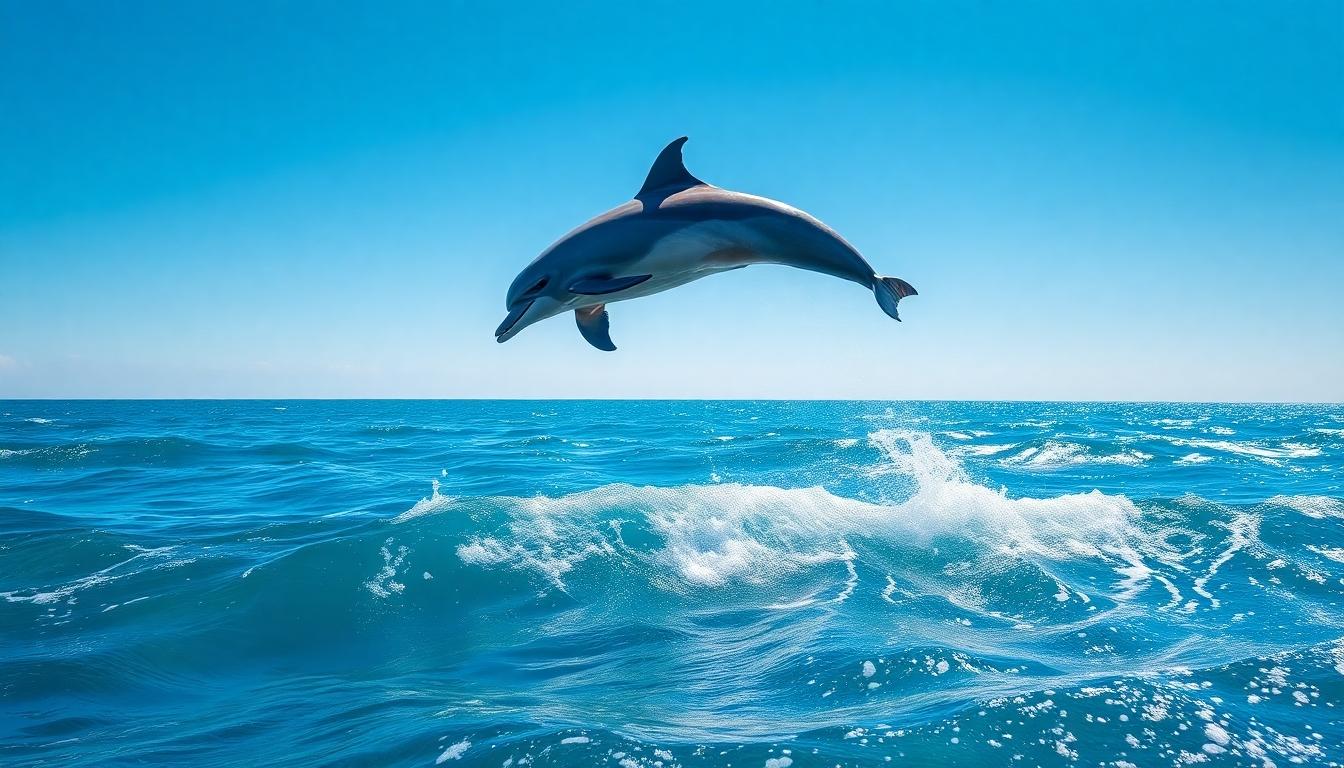
- “Why don’t dolphins ever play tennis?” At the dol-phinish line! This clever pun plays on the similarity between “finish” and “fin,” showcasing the playful nature of dolphin humor.
- “What is a dolphin’s favorite game at parties?” Salmon says! Our marine friends love this aquatic twist on the classic “Simon Says” game, incorporating another sea creature for extra laughs.
- “Where do dolphins sleep?” In their water beds! This joke humorously blends human furniture with dolphins’ aquatic habitat, creating a delightful mental image that’s sure to bring smiles.
- “How do dolphins finish exams on time?” They work on porpoise! Wordplay at its finest, this joke substitutes “purpose” with “porpoise,” highlighting dolphins’ reputation for intelligence and determination.
- “What did the dolphin say to avoid prison?” “I’m off the hook!” Combining fishing terminology with courtroom language creates this charming one-liner that’s perfect for all audiences.
- “Why did the dolphin blush?” It saw the ocean’s bottom! Cheeky without being inappropriate, this joke personifies dolphins with human emotions while making a geographic pun.
- “How do dolphins stay in shape?” They do fin-ercise! Exercise becomes “fin-ercise” in this creative pun that acknowledges dolphins’ athletic abilities and sleek physiques.
- “What’s a dolphin’s favorite instrument?” The sea-clarinet! Musical humor gets an oceanic twist in this joke, combining land-based entertainment with underwater imagination.
- “Why did the dolphin cross the ocean?” To get to the other tide! This nautical spin on the classic chicken joke substitutes “road” with “ocean” and “side” with “tide” for a perfect marine adaptation.
- “What did the ocean say to the dolphin?” Nothing, it just waved! We love how this joke personifies the ocean itself, creating a simple yet effective pun on water movement that’s accessible to joke-tellers of all ages.
Dolphin Knock-Knock Jokes That Are Sure to Entertain

While dolphin jokes often come in the form of puns and one-liners, we’ve created some delightful knock-knock jokes featuring our favorite marine mammals. These interactive jokes are perfect for breaking the ice at parties or entertaining children who love ocean creatures.
Knock knock.
Who’s there?
Dolphin.
Dolphin who?
Dolphinately time for some laughs!
Knock knock.
Who’s there?
Finn.
Finn who?
Finn-tastic to meet a fellow dolphin lover!
Knock knock.
Who’s there?
Wade.
Wade who?
Wade a minute, I forgot my dolphin joke!
Knock knock.
Who’s there?
Water.
Water who?
Water you doing later? The dolphins and I are having a splash party!
Knock knock.
Who’s there?
Shell.
Shell who?
Shell we swim with the dolphins today?
These interactive jokes build on the playful nature of dolphins and their marine environment. Though traditional dolphin knock-knock jokes aren’t as common as puns in marine humor circles, they offer a fun twist on standard dolphin jokes. Kids especially love the back-and-forth format that creates anticipation before the punchline.
For maximum entertainment, try delivering these jokes with animated expressions and dolphin-like gestures. The combination of wordplay with the classic knock-knock structure makes these jokes accessible even to those unfamiliar with marine terminology.
Dad-Level Dolphin Puns Your Family Will Groan About

Porpoise-Driven Puns
Dolphins make excellent subjects for puns because of their playful nature and the word “porpoise.” The classic line “It wasn’t on porpoise!” works perfectly when a dolphin breaks something, like a neighbor’s window. Similarly, career-minded dolphins might celebrate a promotion by declaring “I’m on porpoise!” These puns leverage the sound-alike quality of “purpose” and “porpoise” to create instantly groan-worthy dad jokes that everyone can appreciate.
Ocean-Themed Wordplay
Marine settings provide rich territory for dolphin-related humor. Dolphins looking for real estate always insist on getting an ocean-view porch for their new homes. When attending parties, they bring towels because they want to make a splash among the other guests. These puns combine everyday situations with aquatic elements, creating the perfect formula for dad-level humor that’s sure to elicit eye-rolls from family members.
Aquatic Activities
Dolphins engage in activities just like humans do, but with a fishy twist. They love reading because they can jump into books without getting wet. For vacation destinations, dolphins prefer the Bahamas where they can enjoy some fin and sun. When shopping, they don’t use regular money—they prefer sand dollars as their currency of choice. These playful scenarios anthropomorphize dolphins in ways that make for perfect dinner table jokes.
Musical Mammals
The musical talents of dolphins shouldn’t be underestimated in the industry of puns. These intelligent marine mammals make great musicians because they can tune a guitar with their natural sonar abilities. Their unique way of communicating also inspires jokes about the dolphin alphabet, which goes “A-B-C-D-E-E-E-E-E-E”—mimicking their distinctive high-pitched calls. These sound-based jokes work particularly well when delivered with accompanying dolphin noises.
Food-Related Funnies
Dolphins’ eating habits spawn many humorous observations. The joke “Why was the dolphin so grumpy? He ate too many crabs” plays on the idea of food affecting mood. Another classic involves wordplay with marine plants: “Why did the dolphin go ‘urgh!’? Because the sea weed.” These food-related puns combine marine biology facts with simple wordplay to create jokes that are educational and entertaining simultaneously.
Child-Friendly Dolphin Jokes for Marine Enthusiasts
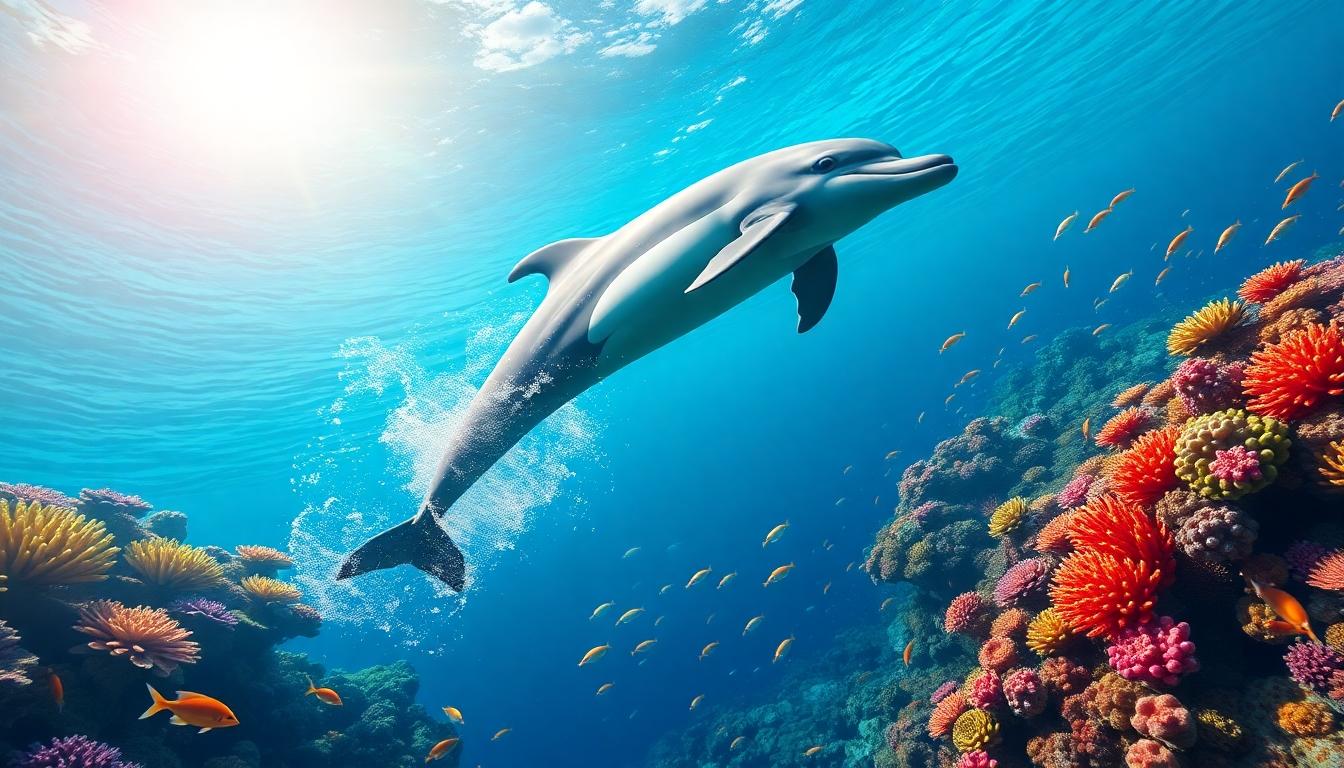
Dolphin humor typically revolves around clever puns and playful wordplay that children can easily understand and enjoy. These jokes are perfect for young marine enthusiasts who are fascinated by these intelligent sea creatures.
Educational Jokes About Dolphin Habits
Learning about dolphins becomes much more fun when education is wrapped in humor. Children can absorb fascinating facts about dolphin behaviors while enjoying these playful jokes:
- “Why do dolphins love school?” “They enjoy the porpoise of learning!”
- “How do sick dolphins get to the hospital?” “By clam-bulance!”
- “What do dolphins use to send messages?” “A shell-phone!”
These jokes subtly introduce important concepts like dolphin intelligence and communication methods. Children might not realize they’re learning about echolocation and marine biology while they’re laughing at these clever punchlines.
Silly Jokes Perfect for Young Ocean Lovers
Young ocean enthusiasts can’t resist these absurd and giggle-inducing dolphin jokes that play with exaggerated scenarios:
- “Why did the dolphin sit on the beach?” “To catch some rays!”
- “What did the dolphin say to the crab?” “Stop being so shellfish!”
- “Why did the dolphin cross the road?” “To get to the other tide!”
- “Why don’t dolphins play tennis?” “They can’t handle the net!”
- “What’s a dolphin’s favorite game?” “Splash tag!”
- “Why did the dolphin bring a suitcase?” “He was going on a sea-venture!”
These jokes rely heavily on marine themes and wordplay featuring homophones like porpoise/purpose and tide/side. We’ve carefully selected jokes with simple structures—short setups with quick punchlines—making them easy for children to remember and retell to friends and family.
Dolphin-Themed Riddles to Test Your Wit
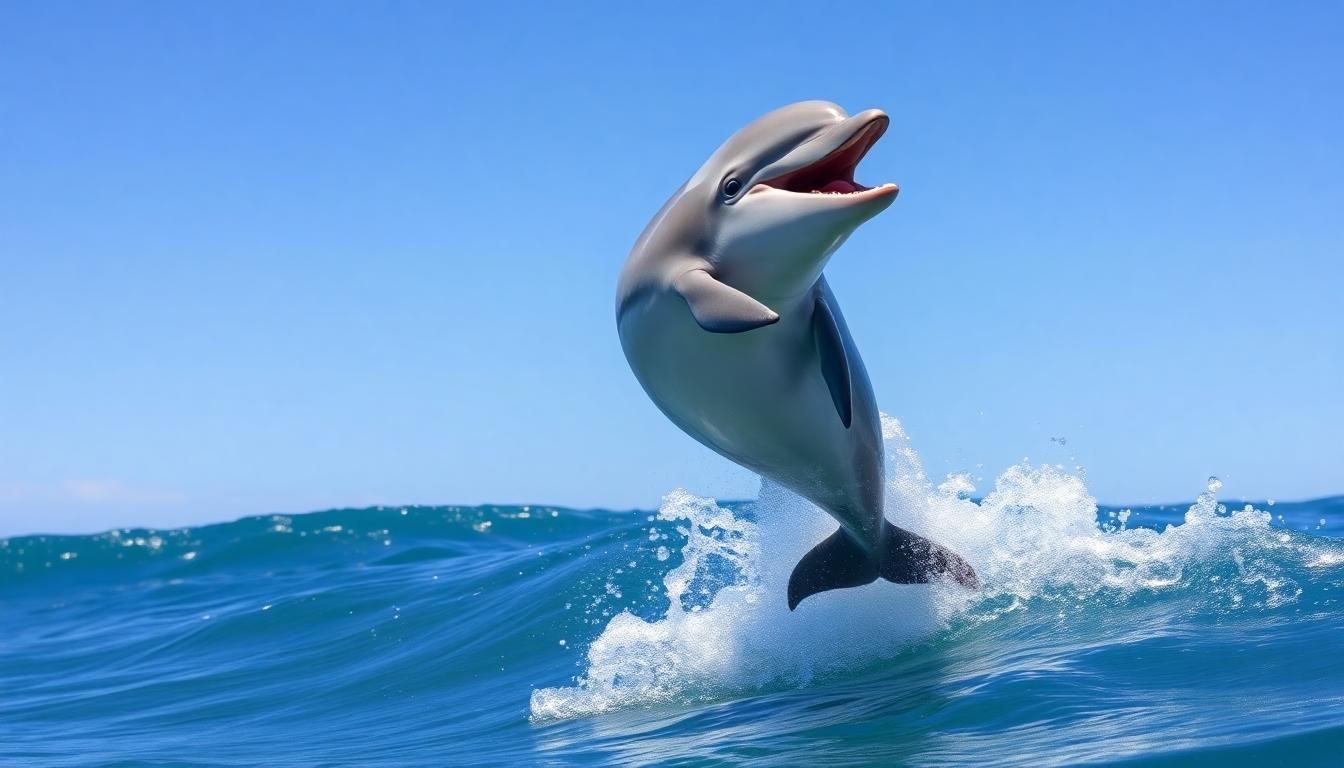
Dolphin riddles combine clever wordplay with marine biology knowledge, creating brain teasers that entertain while showcasing these intelligent creatures. Most dolphin riddles focus specifically on their aquatic traits and behaviors, making them accessible yet challenging for ocean enthusiasts.
Ocean-Inspired Brain Teasers
Ready to dive deeper into dolphin humor? Try solving these riddles that blend marine elements with clever wordplay:
- “Why did the dolphin cross the road? To get to the other tide!” This classic format puts an aquatic spin on the traditional chicken joke.
- “I’m smart, have a blowhole, and communicate with clicks and whistles. What am I?” The answer is obviously a dolphin, but the setup engages critical thinking.
- “What’s a dolphin’s favorite constellation?” The answer “The Big Dipper” combines astronomy with a dolphin’s natural habitat.
- “What made the dolphin suddenly blush? It saw the ocean’s bottom.” This double entendre plays on underwater geography with a touch of innocent humor.
Challenging Marine Mysteries
For those who enjoy tougher riddles, we’ve collected some that require deeper marine knowledge:
- “What has no porpoise until you give it one?” The answer is “a life,” playing on the homophone of “porpoise” and “purpose.”
- “How do you know when a dolphin’s been in your refrigerator?” The punchline “When there are sand dollars missing from your jar” creates a delightful combination of marine currency and household scenarios.
- “What do you call a dolphin that never makes up its mind?” The answer “indolphinite” blends wordplay with personality traits.
- “What has fins but doesn’t swim, lives in the ocean but isn’t a fish, and is incredibly intelligent?” The riddle refers to dolphins, which technically have flippers rather than fins and are mammals, not fish.
Riddles for Young Ocean Explorers
Younger audiences will appreciate these simpler yet captivating dolphin riddles:
- “I leap through waves and have a permanent smile. What am I?” This simple descriptor captures the dolphin’s most recognizable traits.
- “What do dolphins use to talk to each other?” The answer “sonar phones” creates a playful twist on cellular phones while introducing echolocation concepts.
- “Why was the little dolphin so good at school?” The punchline “Because it had a lot of porpoise” introduces younger minds to clever wordplay.
- “What’s a dolphin’s favorite way to communicate?” The answer “Sending a text using their blue-tooth” combines modern technology references with marine terminology.
These riddles not only provide entertainment but also serve as excellent conversation starters at parties or educational tools for learning about marine life. Their blend of intelligence and humor perfectly reflects the nature of dolphins themselves.
Sharing Laughs: Using Dolphin Jokes in Marine Education

Improving Learning Through Humor
Dolphin jokes serve as powerful educational tools in marine biology classrooms and aquarium presentations. Incorporating humor into lessons about dolphins creates a more captivating and memorable learning experience for students of all ages. Research shows that information presented with a humorous element tends to stick better in learners’ minds, making complex marine biology concepts more accessible. When educators use jokes like “Why did the dolphin get a degree in Marine Biology? To find porpoise in her life!” they’re not just getting laughs but reinforcing vocabulary and concepts.
Building Community Connections
Marine education programs benefit tremendously from the community building aspect of shared humor. When groups laugh together over dolphin jokes, they create bonds that enhance the collaborative learning environment. Educational settings that incorporate jokes and wordplay often report higher participation rates and better group cohesion. Jokes create a common reference point that participants can return to throughout their learning journey, reinforcing key concepts while maintaining a light atmosphere.
Implementation Strategies
Educators can strategically place dolphin jokes throughout their curriculum to maximize learning benefits. Starting a lesson with a joke like “What do you call a dolphin with a great sense of humor? A laugh-olphin!” immediately captures attention and sets a positive tone. Interactive sessions where students create their own marine-themed jokes encourage creativity while demonstrating understanding of dolphin characteristics and behaviors. Programs can also use humor as transition points between more serious or technical information segments.
Educational Resources Available
Many educational organizations provide ready-to-use humorous materials for marine educators. Collections from sources like Punsify, which features over 200 dolphin jokes appropriate for various audiences, offer excellent starting points for educators. The Dolphin Research Center provides adaptable riddles that seamlessly integrate into lessons about marine life. Platforms like Scary Mommy offer jokes about dolphin diet and behavior that educators can modify to highlight important scientific concepts while maintaining accuracy.
Balancing Fun and Facts
The most effective educational use of dolphin jokes maintains a careful balance between entertainment and accuracy. Quality marine education incorporates humor that’s both scientifically sound and genuinely funny. When using jokes like “What did Cinderella dolphin lose at the ball? Her glass flipper,” educators can follow up with facts about dolphin anatomy and movement. This approach helps students connect emotionally with the material while ensuring they receive correct information about these remarkable marine mammals.
The Science Behind Why Dolphin Jokes Make Us Smile
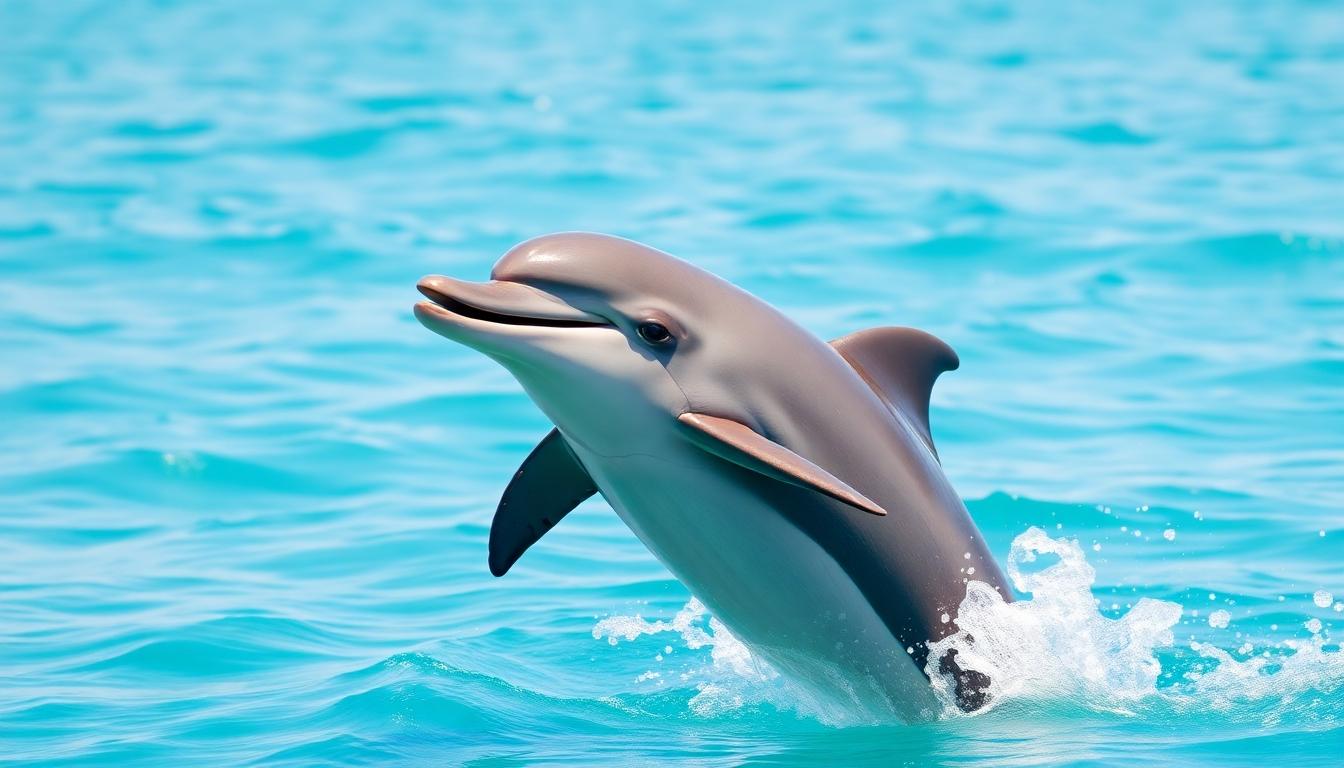
The Brain Science of Dolphin Humor
Dolphin jokes trigger exact neurological responses that explain their appeal. When we hear a dolphin joke like “Why don’t dolphins play cards? They’re afraid of getting caught in a net work,” our brains release dopamine as we resolve the unexpected wordplay. This neurochemical reward makes the experience pleasurable and reinforces our enjoyment of similar jokes. Neural reward pathways activate specifically when we process the incongruities present in these marine-themed quips.
Three Scientific Theories of Humor
Scientists have developed three main theories that explain why dolphin jokes make us laugh:
- Incongruity Theory – Dolphin jokes work by subverting our expectations with mismatched ideas. The punch line creates a surprising connection between dolphins and everyday concepts, triggering amusement when our brains resolve this mismatch. This cognitive “aha” moment is central to why wordplay in dolphin jokes feels satisfying.
- Relief Theory – We laugh at dolphin jokes as a way to release psychological tension. These lighthearted marine themes offer welcome mental breaks from our daily stressors. The playful nature of dolphins themselves adds to this tension-relieving quality, creating a momentary escape.
- Superiority Theory – While less relevant to gentle dolphin humor, this theory suggests some satisfaction comes from mastering the joke’s premise. Unlike harsh comedy, dolphin jokes avoid mockery and instead create benign feelings of intellectual accomplishment when we “get” the punchline.
The Social Connection of Shared Laughter
Dolphin jokes strengthen social bonds through shared amusement. When we laugh together at a dolphin joke, we signal mutual understanding and appreciation of the humor. This social reinforcement explains why marine-themed jokes work so well as icebreakers at parties or classroom settings. The inclusive nature of dolphin humor creates connection without relying on divisive topics.
Evolutionary Roots of Humor
Our appreciation for dolphin jokes has evolutionary origins similar to play behaviors in other species. Laughter itself may have evolved from primate play-fighting vocalizations, serving as practice for problem-solving and social coordination. This evolutionary perspective helps explain why even simple dolphin jokes engage our collaborative cognitive functions and feel inherently rewarding.
The O’Shannon Model Applied to Dolphin Humor
The comprehensive O’Shannon model explains dolphin jokes’ appeal through three components. First, these jokes offer safe incongruity resolution through their context of marine life. Second, they provide social enhancers through shared appreciation of wordplay. Finally, dolphin jokes contain minimal inhibitors since they avoid aggressive or offensive content, making them universally appealing across age groups and cultures.
Making a Splash: How to Create Your Own Dolphin Jokes
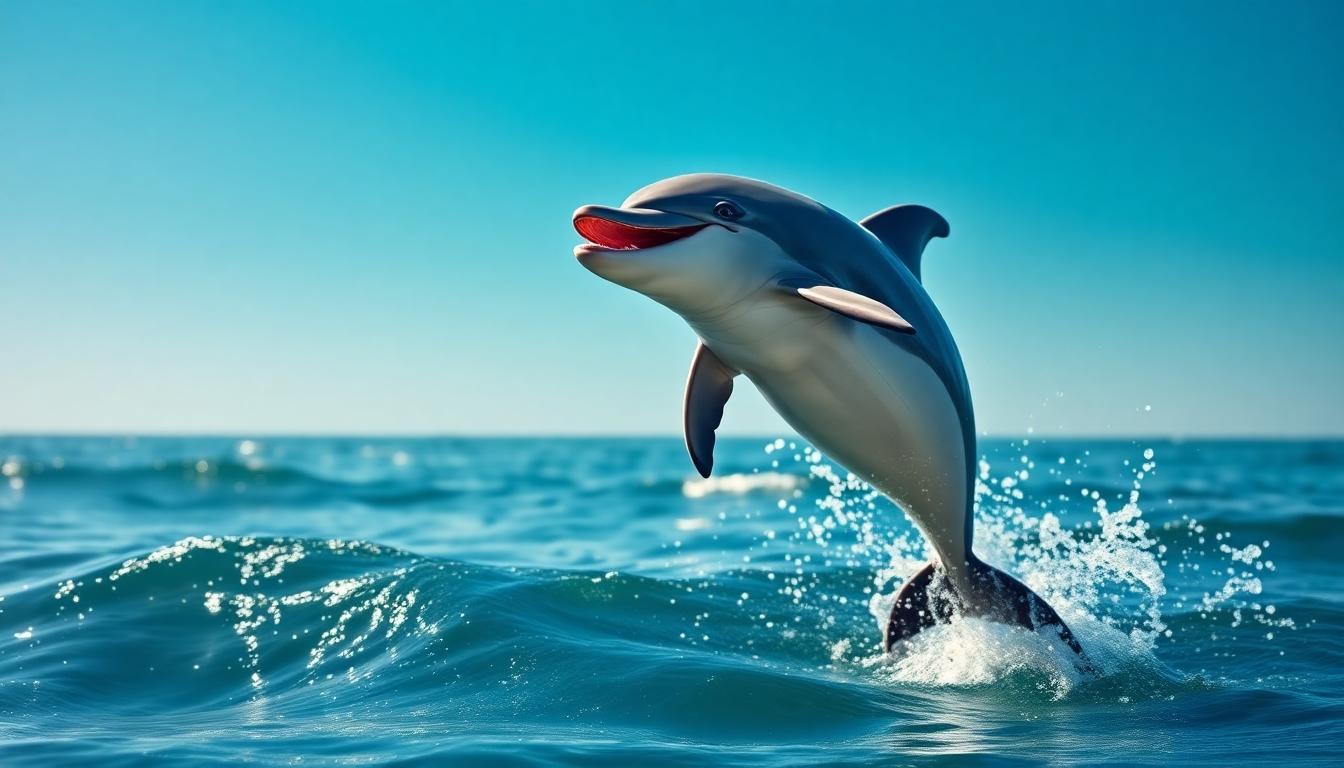
Creating your own dolphin jokes is easier than you might think! We’ve gathered some proven techniques to help you create hilarious marine humor that will have everyone laughing. Follow these simple strategies to develop your own dolphintastic comedy.
Master the Art of Wordplay
Wordplay forms the foundation of great dolphin jokes. We recommend incorporating dolphin-related terms like “fin,” “dolphin,” and “sea” into common phrases to create clever puns. Try transforming “definitely” into “dolphinitely” or use “fin-tastic” instead of “fantastic” to give your jokes that aquatic twist. Experiment with homonyms and similar-sounding words to develop jokes that play on multiple meanings.
Transform Common Phrases
Everyday expressions can become comedy gold with a dolphin twist. We’ve found that modifying familiar sayings works extremely well – like changing “go with the flow” to relate it to a dolphin’s swimming habits. Popular phrases such as “making a splash,” “testing the waters,” or “diving right in” can be repurposed for dolphin humor with minimal effort but maximum impact.
Incorporate Dolphin Behaviors
Real dolphin behaviors provide rich material for jokes. We suggest referencing their intelligence, social nature, echolocation abilities, or playful jumping to create humor that feels authentic. Jokes like “Why was the dolphin always relaxed? It knew how to go with the flow” work because they connect to how dolphins actually move through water, making the humor more relatable and clever.
Mix Marine Themes with Everyday Life
Combining dolphin elements with everyday situations creates unexpected humor. We encourage blending dolphin themes with food (seafood jokes), sports (swimming competitions), or technology (underwater communication) to develop multidimensional jokes. For example, “Why did the dolphin become a chef? It was great at whipping up some fish-tastic meals” successfully merges cooking with marine life.
Perfect Your Joke Structure
Structure matters in comedy. We find that the classic setup-punchline format works particularly well for dolphin jokes. Start with a question that prompts curiosity, then deliver an unexpected answer that incorporates dolphin elements. The surprise factor in “What’s a dolphin’s favorite game? Fin-and-seek” comes from the clever wordplay in the punchline that you don’t anticipate from the setup.
Practice Role Reversals
Role reversals create surprising and humorous scenarios. We suggest placing dolphins in human situations or giving them human characteristics to generate unexpected comedy. Imagining dolphins doing typically human activities—like playing cards, cooking dinner, or attending school—instantly creates a comical mental image that enhances your joke’s memorability.
By applying these techniques consistently, you’ll soon be creating original dolphin jokes that make everyone laugh. The key is practicing regularly and not being afraid to experiment with different approaches until you find what works best.
Conclusion: Why Dolphin Humor Creates Lasting Ripples
Dolphin jokes offer more than just fleeting laughter. They’ve captivated audiences through their clever blend of marine facts and playful wordplay that appeals to everyone from young ocean enthusiasts to marine biology professionals.
We’ve explored how these aquatic quips create connections across generations while subtly educating us about these remarkable creatures. Whether you’re sharing knock-knock jokes with kids or testing your friends with dolphin riddles, there’s something inherently joyful about humor that celebrates one of nature’s most intelligent species.
Next time you need to make a splash at a gathering, remember that dolphin jokes aren’t just entertaining—they’re a fin-tastic way to jump into conversations about marine conservation while keeping spirits high. So go ahead and share these jokes with pod-ners of all ages!
Frequently Asked Questions
Why are dolphin jokes so popular?
Dolphin jokes have gained popularity due to their universal appeal. The playful nature of dolphins combined with marine themes creates humor that resonates across different audiences. Environmental awareness has also elevated dolphins as cultural icons, providing rich material for jokes that leverage linguistic creativity and cultural references. Their intelligence and charismatic behaviors make them perfect subjects for family-friendly humor.
Are dolphin jokes suitable for children?
Absolutely! Dolphin jokes are family-friendly and perfect for children of all ages. Many are specifically designed with simple structures and silly scenarios that young ocean enthusiasts can easily understand and enjoy. These jokes not only entertain kids but also introduce them to marine biology concepts in a fun, engaging way, making them both educational and entertaining.
How can dolphin jokes be used in education?
Dolphin jokes serve as excellent educational tools in marine biology classrooms and aquarium presentations. Research shows that humorous content helps students retain complex concepts better. Educators can use these jokes as attention-grabbers, transition points between lessons, or memory aids for scientific facts. This approach creates an engaging learning atmosphere while reinforcing important concepts about marine life.
What makes a good dolphin joke?
A good dolphin joke typically incorporates clever wordplay, marine themes, and references to dolphin behaviors. The best ones blend unexpected connections (like “porpoise/purpose” puns) with relatable scenarios. Effective dolphin jokes usually follow clear structures—whether one-liners, knock-knock jokes, or riddles—and deliver punchlines that create humorous incongruity while remaining accessible to general audiences.
Can dolphin jokes help with social interactions?
Yes! Dolphin jokes are excellent icebreakers at social gatherings. The science behind humor shows that shared laughter triggers neurological responses that foster social connections. These jokes are particularly effective because they provide safe, universally appealing humor with minimal cultural barriers. Knock-knock jokes and riddles especially create interactive moments that encourage participation and build rapport among group members.
How do I create my own dolphin jokes?
To create original dolphin jokes, focus on wordplay involving marine terminology (like “fin-tastic” or “dolphinately”), transform common phrases with dolphin themes, and incorporate dolphin behaviors into everyday scenarios. Blend marine elements with familiar situations and perfect your joke structure with clear setups and unexpected punchlines. Practice delivery timing and consider your audience to maximize the humor impact.
Why do we find dolphin jokes funny from a scientific perspective?
From a scientific standpoint, dolphin jokes trigger laughter through three main humor theories: Incongruity Theory (unexpected connections between dolphins and human situations), Relief Theory (releasing tension through laughter), and Superiority Theory (finding humor in dolphins’ quirky behaviors). The O’Shannon model explains that dolphin jokes provide safe incongruity resolution with minimal cultural or contextual barriers, making them universally appealing.
What types of dolphin jokes exist?
The dolphin joke universe includes one-liners (“Why don’t dolphins use computers? They’re afraid of the net!”), knock-knock jokes (“Dolphin who? Dolphinately time for some laughs!”), puns (especially playing on “porpoise/purpose”), riddles that engage critical thinking, and silly scenarios perfect for children. Each type offers different benefits—from quick laughs to interactive experiences that strengthen social bonds.







